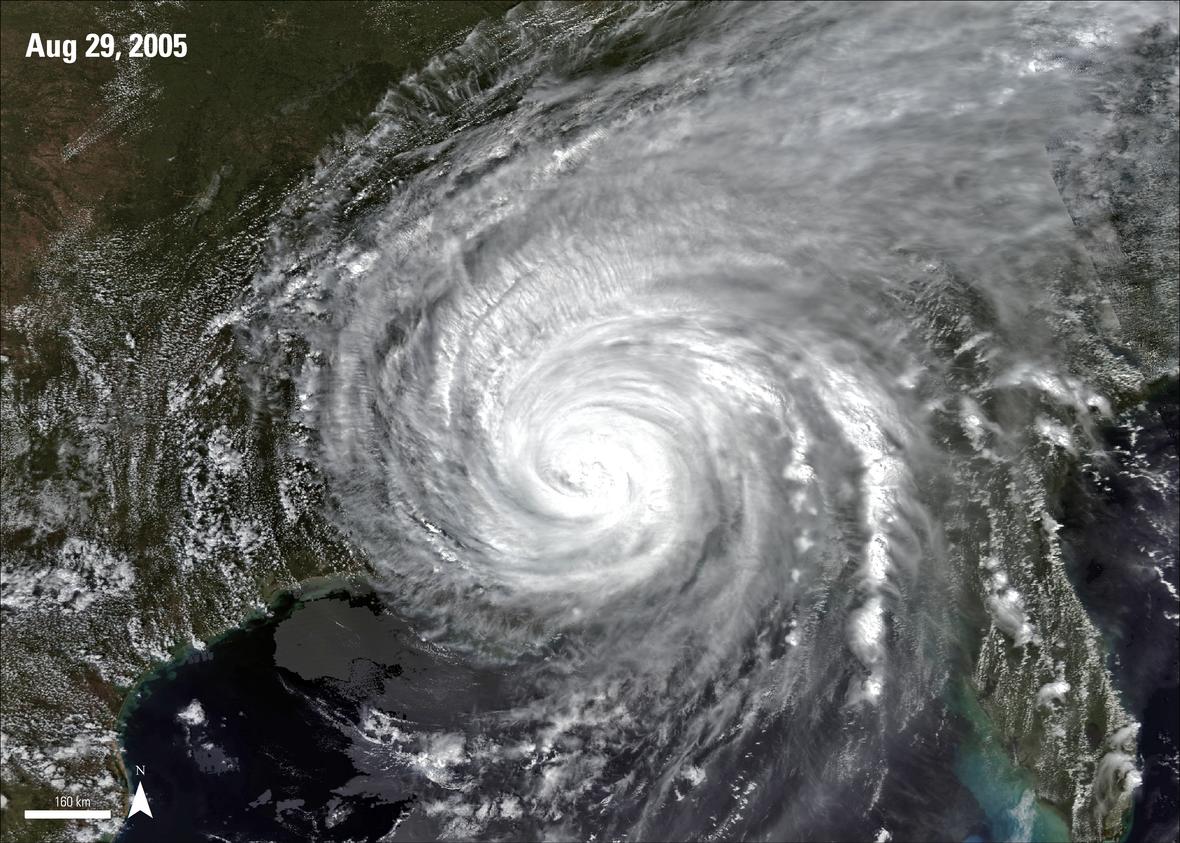Katrina + 15 and our ongoing efforts to respond to and prepare for disasters

(Photo of Hurricane Katrina August 29, 2005, USGS)
As the 2020 hurricane season continues to surpass records, Tulane public health researchers are looking back to lessons from 2005, the last year forecasters had to dip into the Greek alphabet for storm names due to a devastatingly active Atlantic season.
Tulane University School of Public Health and Tropical Medicine faculty contributed several articles about the long-term impacts of Hurricane Katrina in “Katrina 15 Years After,” a special section of the latest issue of The American Journal of Public Health.
The issue presents evidence that coastal communities are still at risk due to the increasing effects of climate change, the environmental hazards present in the aftermath of major hurricanes and the distance yet to go for fully realized emergency preparedness in many communities.
Those risks are at the forefront as the Gulf Coast has braced for multiple storms this season, with more than two months of hurricane season yet to play out.
Tulane authors discuss topics such as the disaster’s effect on births and adverse outcomes; advances in environmental health and disaster research; an evolving approach to food inequities and community health worker leadership in Louisiana in the aftermath of the storm and flooding.
First authors include Dr. Emily Harville, associate professor of epidemiology; Dr. Mark Wilson, assistant professor of environmental health sciences; Dr. Maureen Lichtveld, Freeport McMoRan Chair of Environmental Health Policy; Dr. Stephen Murphy, assistant professor of environmental health sciences; Dr. Diego Rose, professor of global community health and behavioral sciences; and Catherine Haywood, who served as community service program manager of the Tulane Prevention Research Center for more than 20 years. Many other faculty and staff contributed to the articles published, as well.
The issue opens with commentary by Dr. Thomas A. LaVeist, dean of the Tulane School of Public Health and Tropical Medicine and Weatherhead Presidential Chair in Health Equity. LaVeist compares the lessons learned in Katrina to our present situation in responding to the pandemic of COVID-19. He shares how many on the Gulf Coast mark time as before and after Hurricane Katrina.
“We are in the midst of another before and after moment,” writes LaVeist. “It can be tempting to look longingly to the before of COVID-19. …Instead we must look ahead and imagine a new after. A better after. An after worthy of the sacrifices of those who will not survive to reach it.”
